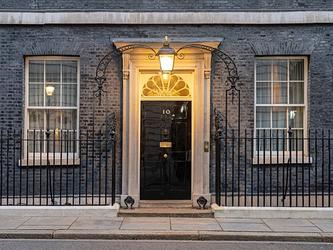UK more liberal in 2023, finds British Social Attitudes study

The study, run since 1983 by the National Centre for Social Research (NatCen), found that attitudes towards many sexual and family issues have become markedly more liberal, with the proportion of people believing same-sex relationships were always wrong dropping from 50% to 9% over the 40 years of the survey.
Only 24% of those surveyed in 2023 agreed that people who want children should get married, compared with 70% in 1989, while 76% said in 2023 that the law should allow an abortion if the woman decided she does not want the child, up from 37% in 1983.
However, the proportion of people who agreed a transgender person should be allowed to have the sex on their birth certificate changed if they want was at 30% in 2023, down from 53% in 2019.
The British Social Attitudes survey found significant changes in views of gender roles, with 9% agreeing that ‘a man’s job is to earn money, a woman’s job is to look after the home and family’, compared with 48% in 1987.
In 1989, 46% agreed that ‘a preschool child is likely to suffer if his/her mother works’, with that figure now standing at 21%.
The research found 76% believed housework should be shared, although among those currently in a mixed sex relationship, 65% report that the washing and ironing is mainly done by the woman, while just 27% say it is shared equally.
Class was still a major issue, with 77% believing a person’s social class affects their opportunities in Britain ‘a great deal’ or ‘quite a lot’, and the proportion who think it is very difficult for people to move from one class to another has nearly doubled from 17% in 2005 to 32%.
Generational differences were behind the increased liberalisation of the UK, the report said, with younger generations with more liberal views replacing older generations born in the early 20th century.
Attitudes towards the role and size of government have moved up and down, with the proportion in favour of higher taxes and social, health and education spending moving from 32% in 1983 to 63% in 1998, 31% in 2010 and 55% in 2023.
In 2006, just 27% said it should definitely be the government’s responsibility to provide industry with the help it needs to grow, down from 52% in 1985, while now the figure is at a record high of 63%.
Similarly, the proportion who say that it should definitely be the government’s responsibility to ‘keep prices under control’ stood at 59% in 1985, 31% in 2006 and 68% in 2023.
Attitudes towards welfare became less generous in the 2000s, but now have since swung back again, the British Social Attitudes study said.
In 1989, 61% agreed that the government should spend more on welfare benefits for the poor, even if it leads to higher taxes’, falling to 27% in 2009 and rising again to 43% in 2017 and 37% in 2023.
In 1994, 71% felt that there was quite a lot of poverty in the UK, dropping to 52% in 2006 but rising again to 69% in 2023.
Sir John Curtice, senior research fellow at NatCen, said: “The vast social changes that Britain has witnessed over the last 40 years have been accompanied by a near-revolution in attitudes towards many social and moral issues, including sexuality and the role of women.
“The pandemic and the cost-of-living crisis seem to have left the public rather more inclined than at some points in the past to look to government to solve the problems they and the country face.
“Yet, despite this apparent enhanced appetite for ‘bigger government’, people now expect to able to live their own lives and look to government to facilitate that desire rather than stand in the way.”

We hope you enjoyed this article.
Research Live is published by MRS.
The Market Research Society (MRS) exists to promote and protect the research sector, showcasing how research delivers impact for businesses and government.
Members of MRS enjoy many benefits including tailoured policy guidance, discounts on training and conferences, and access to member-only content.
For example, there's an archive of winning case studies from over a decade of MRS Awards.
Find out more about the benefits of joining MRS here.














0 Comments